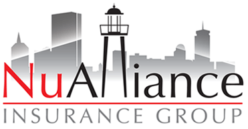How Life Insurance Can Protect a Business
The need for life insurance for the business is usually discussed in two very important aspects; Key Man insurance and Buy/Sell Agreements. In both scenarios, life insurance is the lowest cost funding vehicle.
What is Key Man insurance?
 Although a business may have five or five hundred employees, in most cases there are only a few key individuals that the business depends on to exist. This is not always the owner or CEO. Take for example a successful real estate agency. Typically less than a handful of agents will be the driving force in any particular office. The same goes with a successful hair salon where one or two key stylists have a client list that keeps the doors open. In any business, whether small or large, the loss of a key person can result in financial turmoil for the surviving business.
Although a business may have five or five hundred employees, in most cases there are only a few key individuals that the business depends on to exist. This is not always the owner or CEO. Take for example a successful real estate agency. Typically less than a handful of agents will be the driving force in any particular office. The same goes with a successful hair salon where one or two key stylists have a client list that keeps the doors open. In any business, whether small or large, the loss of a key person can result in financial turmoil for the surviving business.
The most cost effective way to protect a business after the loss of a key person is with a life insurance policy issued with the key person as the insured and the business as the beneficiary. Upon the death of a key person, the business would have access to these funds for the following:
- replace lost revenue resulting from the key person loss
- use the insurance funds as a signing bonus to hire a replacement
- finance a PR campaign to offer assurances to existing clients
- finance a previously written transition plan
Using a term life insurance policy can be a very affordable way to provide insurance for the key person or persons provided there are no serious health issues. The business can purchase the policy for one to thirty year terms and allow the key person to take the policy with them if they leave the company.
What is the best way to fund a buy/sell agreement?
The second scenario discussed previously is the need for a buy/sell agreement between stakeholders of a business. Although typically used in partnerships, the buy/sell agreement can also be setup between the business owner and an employee or group of employees. Templates for a buy/sell agreement can be found online and do not necessarily have to be written by an attorney. The agreement is a fairly simple.
A typical example would be a two person partnership where each partner wants their spouse bought out of the company in the event of the death of a partner. For example, you and a partner own an insurance agency. Upon the death of one of the partners, the ownership share would typically pass on to the spouse or heirs. The surviving partner would then need the cash to purchase the ownership from the spouse or heirs who have become his or her new partner. The most affordable funding vehicle would be a term life insurance policy. With the death benefit determined to be the estimated value of the business, the surviving partner (the beneficiary of the policy) would then have the cash needed to offer a respectable buyout. In this case the beneficiary would be the partner rather than the company. The value of the company would need to be estimated at least every five years so that more insurance can be purchased as needed. This same process can work to fund a buy/sell agreement for the owner of a business and his or her employees. Another example would be a person owning a dental practice and wanting to set up the buy/sell agreement between himself and staff members. Upon the death of the owner, the staff members would have the needed funds to buy out the interest of the business owner’s spouse or heirs.
Given the fact that death is inevitable and in many cases happens sooner rather than later, it is incumbent upon the business stakeholders to get the proper key man insurance and/or buy/sell agreements in place when the business is young and most likely the participants are also. The required insurance policies will be much more affordable for a younger and healthier person.


